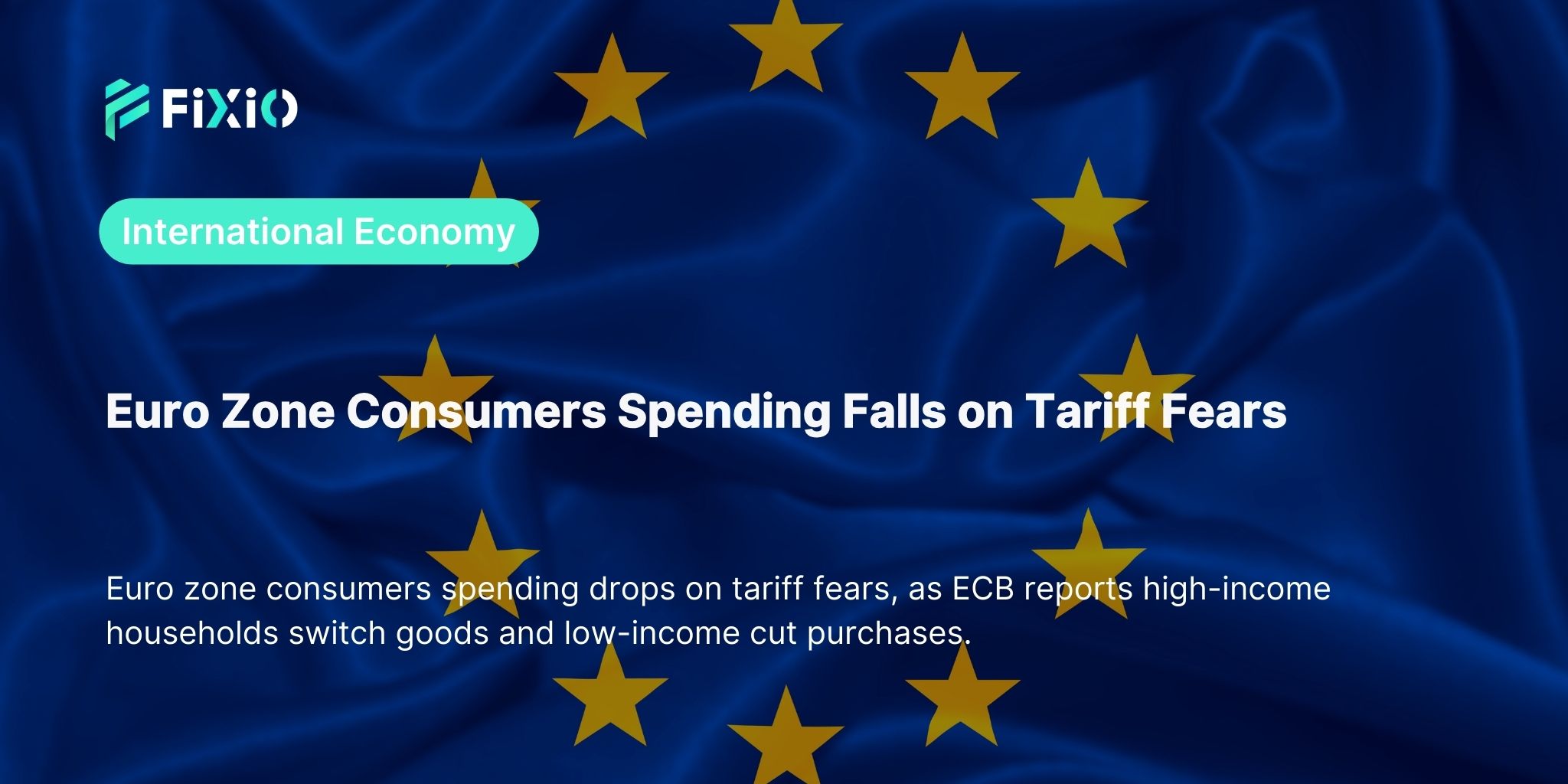
Why have Euro zone consumers cut spending despite sitting on record levels of savings? The answer lies in fears of new tariffs on imports, uncertainty about inflation, and changing attitudes toward American products. A recent report from the European Central Bank (ECB) sheds light on how households across the bloc are adapting to these pressures.
The ECB study highlights that consumers have altered their spending patterns in anticipation of U.S. trade measures. Around 26% of respondents reported switching away from U.S. goods, while 16% reduced their overall spending. This change shows how concerns over international trade policy can ripple into household decisions, shaping demand across Europe.
Uncertainty surrounding potential U.S. tariffs has weighed heavily on consumer confidence. Much like during the height of the U.S.-China trade war, fear of rising costs has made consumers cautious. Even though tariffs have not yet hit every product, the expectation alone has shifted buying decisions.
According to the ECB, high-income households are more likely to change brands or suppliers, moving away from U.S. products to European or alternative markets. Lower-income households, on the other hand, tend to cut back on discretionary purchases such as clothing, travel, and leisure activities. This divergence underscores how purchasing power influences the flexibility of household budgets.
Interestingly, spending on basic necessities—food, housing, and energy—has remained largely stable. Cuts have concentrated on non-essential categories, which suggests that tariff fears primarily affect consumer confidence in lifestyle-related expenses. The ECB also noted that financial literacy plays a role: better-informed consumers make more nuanced adjustments, while others respond with broader spending cuts.
The ECB report further revealed that many consumers have adjusted their inflation expectations upward. This shift suggests that households believe tariff pressures will push prices higher in the medium to long term. Although economists often describe tariff effects as transitory, perceptions among the public tell a different story. When consumers expect inflation, they often delay purchases, creating a self-reinforcing slowdown in demand.
Changes in household spending habits carry significant weight for the euro zone economy. Consumption accounts for a large portion of Gross Domestic Product (GDP). When people hold back on discretionary spending, businesses face weaker demand, which in turn reduces investment and employment opportunities.
Economic history shows that trade policy uncertainty often influences household decisions. During the Smoot–Hawley Tariff Act era in the 1930s, rising tariffs fueled global trade tensions and reduced purchasing power. While today’s context is different, parallels can be drawn in terms of consumer hesitation and broader economic slowdown.
The ECB’s insights into consumer behavior are crucial for monetary policy. If tariffs reduce demand, inflationary pressure could ease in some sectors while increasing in others. This mixed impact complicates decisions for central bankers who must balance growth, price stability, and employment objectives. The ECB may need to reinforce confidence through targeted communication or policy adjustments to avoid a protracted slump in household consumption.
Through tools such as interest rate changes and quantitative easing, the ECB can influence borrowing costs and consumer behavior. However, monetary policy alone cannot erase the uncertainty created by tariff disputes. Fiscal measures and trade negotiations will also be necessary to restore consumer confidence.
The ECB’s latest findings make clear that Euro zone consumers cut spending not because they lack resources, but because uncertainty over tariffs has reshaped their confidence. The divergence between high- and low-income households highlights broader social impacts, while shifting inflation expectations add another layer of complexity for policymakers. Until trade tensions ease, consumer restraint will remain a defining feature of the euro zone economy. Stay informed with the latest Forex trading news and analysis. Visit our website now at: https://fixiomarkets.com/en/prex-blogs
Euro zone consumers spending drops on tariff fears, as ECB reports high-income households switch goods and low-income cut purchases.
Superior trade execution & trading conditions with the NDD method.

The online FX industry provides a platform for investors worldwide to engage in the buying and selling.

Subscribe to our daily newsletter and get the best forex trading information and markets status updates
Trade within minutes!
Comment (0)